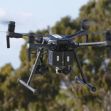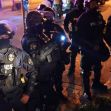Arizona Governor Doug Ducey signed into law a new bill on July 6 that makes it illegal for anyone to record law enforcement within eight feet. The new law makes it a misdemeanor if anyone keeps recording after the police officer tells them to stop.
One exception allows for anyone in a stopped vehicle to tape their law enforcement encounter.
The law also states someone being questioned by police can tape, though how anyone who may be held down, or in handcuffs, can tape their encounter is unclear if not downright impossible.
The rise of taping on cell phones has revolutionized law enforcement. Technology offers citizens across the nation the ability to record videos of law enforcement authorities in action as they subdue or harm alleged criminals.
Some of these videos have rocked the world, leading to international protests such as Black Lives Matter and convictions of numerous US police officers who were shown killing people who were stopped for misdemeanor crimes. This long list of victims includes George Floyd, Jason Harrison, Eric Garner, Kajieme Powell, Antonio Zambrano-Montes, Charly Keunang, Phillip White, and hundreds more.
The ACLU strongly disagrees with the new law.
K. M. Bell with the American Civil Liberties Union of Arizona said the new law is not constitutional. Bell said the new law violates First Amendment rights.
"At the end of the day, is this constitutional? Yes or no? No," Bell said.
Bell also noted that it’s obvious most people won’t be able to guess what eight feet looks like, based on recent pandemic behavior.
"A lot of stores line out stickers every six feet and the TSA put stickers every six feet because people don’t know how far six feet is," Bell noted.
The bill was introduced by Arizona Republican John Kavanagh. The first draft of the bill made it illegal for anyone to film within fifteen feet of any law enforcement actions, but the law was amended to eight feet. Kavanagh said he changed the bill to eight feet based upon a Supreme Court ruling involving abortion protestors.
Arizona Democrat Minority Leader Reginald Bolding said the new law will create negativity between minorities and the police since it will hinder transparency while making people feel less safe from police violence.
"One way to not do that is telling them (minorities) that they cannot use their cellphones or do any type of recording unless it’s within a specific set of guidelines," Bolding said during a vote back in February.
The Associated Press (AP) said the new law raises constitutional issues. A signed letter from the National Press Photographers Association, Radio and Television News, the Reporters Committee for Freedom of the Press (RCFP), the Press Freedom Defense Fund (PFDF), and twenty-three more organizations said, “Letting an officer decide on the spot what First Amendment-protected activity should be allowed would be problematic in many situations.”
The AP letter points out specific laws the new law allegedly violates.
“We are extremely concerned that this language violates not only the free speech and press clauses of the First Amendment, but also runs counter to the “clearly established right” to photograph and record police officers performing their official duties in a public place, cited by all the odd-numbered U.S. Circuit Courts of Appeal including the Ninth Circuit,” the letter states. “While such rights are not absolute and subject to reasonable time, place and manner restrictions, we believe that requiring the ”permission of a law enforcement officer” and setting a minimum distance of fifteen feet in between the law enforcement officer and the person recording, would not survive a constitutional challenge and is completely unworkable in situations (such a demonstrations and protests) where there are multiple officers and people recording. It is also constitutionally infirm to grant an officer the right to order a person who is filming “to stop recording or to leave the area” under an officer’s sole determination that such First Amendment protected activity constitutes interference (which is undefined under the proposed statute).”
Under the new law, anyone taping within eight feet will face misdemeanor charges and could serve up to 30 days in jail.






